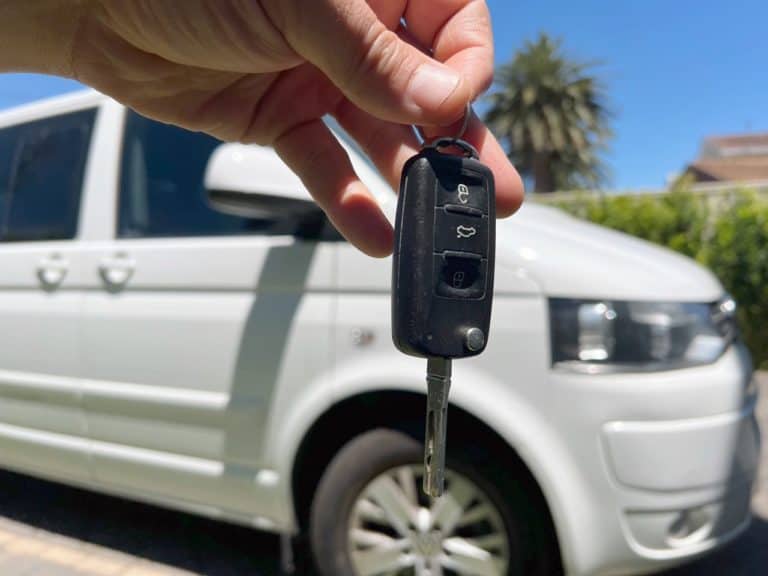Should you pay Cash or Finance your next car?
Congratulations! As the new financial year approaches, it’s time to buy a new work ute to make the most of tax advantages and reward your hard work. Once you’ve picked out your dream vehicle, the next step is figuring out how to finance it. There are two main options: paying the full amount upfront in cash or taking out a loan and making periodic payments.
Should you Pay Cash for Your Car?
When you pay cash for a car, you cover the full price at the time of purchase. This means the car is yours outright, with no ongoing financial commitments. This option is ideal if you have enough savings set aside.
Benefits of Paying Cash
- Peace of Mind: Paying cash means no loan repayments or interest rates to worry about. You can enjoy your car stress-free, knowing it’s fully paid off from day one.
- Interest-Free Ownership: Loans come with interest payments, which increase the overall cost of the car. By paying cash, you avoid these additional costs.
- Flexibility: Owning the car outright gives you the freedom to sell it whenever you want without any restrictions or remaining loan balance.
- Tax Advantages for Businesses: If you’re purchasing the car for business use and the vehicle is valued under $20,000, you can take advantage of the Australian Tax Office’s (ATO) instant tax write-off*. This means you can claim the full cost as an immediate deduction, rather than following the standard depreciation schedule. For assets over $20,000, you can still claim the vehicle on your tax offset but must follow a depreciation schedule.
Cons of Paying Cash
- Depletes Savings: Paying the full amount upfront can significantly reduce your savings, leaving you with less financial cushion for emergencies or other opportunities.
- Missed Investment Opportunities: By using your cash to buy a car, you might miss out on potential investment returns that could have been earned if the money was invested elsewhere.
- Liquidity Issues: Tying up a large sum of money in a depreciating asset like a car can limit your liquidity, reducing your ability to quickly access funds when needed.
- Impact on Business Cash Flow: Using cash to purchase a business asset like a car means that money is no longer available for other business activities, such as buying stock or specialised equipment, or maintaining cash flow. While getting a car or asset loan is a straightforward and quick process, securing a loan for other business needs can be more time-consuming and difficult to obtain.
- Cost of Living Pressures: For individuals, using cash to buy a car can leave you without a safety buffer for unexpected costs, such as bills or home repairs. Having cash on hand can provide financial security in times of need.
Financing Your Car
Financing involves taking out a loan and repaying it in instalments over a set period. This can be done through the car dealer’s finance division or an external lender.
Benefits of Financing
- Opportunity to Invest Elsewhere: Instead of tying up a large sum of money in a car, you can invest it elsewhere and potentially earn returns that offset the loan’s interest.
- Immediate Access: Financing allows you to get the car you need without waiting to save up the full amount. This is especially useful if your current car no longer meets your needs.
- Boost Your Credit Rating: Consistently making loan payments can improve your credit score, making it easier to secure future loans, including mortgages.
- Tax Advantages for Businesses: If you finance your vehicle as a “chattel mortgage,” you can still claim the $20,000* instant depreciation if the vehicle is valued under $20,000. The interest component of the chattel mortgage is also tax-deductible. Lease payments are 100% tax-deductible, although leases do not qualify for the instant depreciation write-off.
- Tax Benefits for Individuals: For individuals, a lease can be beneficial as it allows you to pay for the vehicle out of your pre-tax salary, potentially lowering your taxable income. This can push you into a lower tax bracket, reducing the overall amount of tax you pay or at least covering part of the repayment, thereby lowering the effective repayment amounts.
Cons of Financing
- Interest Payments: Financing a car involves paying interest on the loan, which increases the overall cost of the vehicle. This means you end up paying more than the car’s purchase price over time.
- Ongoing Financial Commitment: Taking out a loan means committing to regular payments over a set period, which can create financial pressure, especially if your circumstances change unexpectedly.
- Depreciation: Cars depreciate in value quickly, and if you’re still making payments on a loan, you could end up owing more than the car is worth, especially in the early years of the loan.
- Loan Restrictions: Financing can come with certain restrictions, such as the need to maintain specific insurance coverage or limitations on modifications and selling the car before the loan is paid off.
Ultimately, the best option depends on your financial situation and goals. Whether you choose to pay cash or finance your new car, it’s important to make a decision that suits your needs both now and in the future.
Disclaimer: The information on this website is for general purposes only and not a substitute for professional financial advice. TradeMate recommends seeking independent legal, financial, taxation or other advice unique to your individual circumstances.
*The $20,000 ATO instant tax write-off applies to vehicles primarily used for business purposes purchased in the 2023-2024 taxation year. Please note that ATO regulations are subject to change and may be updated in future budgets.









